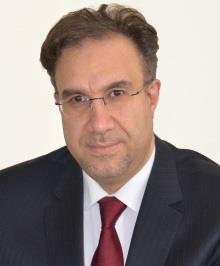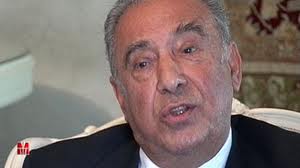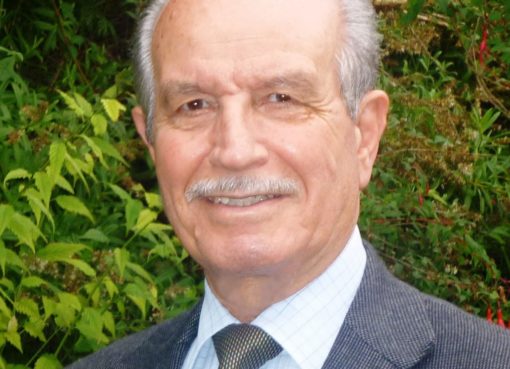$7.3 billion on KRG fuel imports could have been saved with affordable gas
Editor’s Note: Luay al-Khatteeb discusses the relationship between Kurdistan Regional Government (KRG) and Baghdad in an interview with Harem Karem of theThe Kurdistan Tribune.
Harem Karem: How do you see the future of the current deal between Baghdad and Erbil? We are handing over the agreed oil volumes to Baghdad and fighting a war with ISIS. Why is the federal government still not paying the full monthly budget allocation to the KRG? How can Baghdad/Erbil relations improve?
Luay al-Khatteeb: All oil deals between Baghdad and Erbil are doomed before they start. There is a history to this that goes back to 2007 and I have lost count of how many failed deals called “Erbil Agreement” there have been. They are usually based on a vague understanding between federal and regional authorities to resolve a political bottleneck before every federal government formation or when attempting to pass the federal budget law. I therefore see no reason why this deal will succeed when they are only used as a primitive tool to solve a political impasse rather than resolve the history of fair allocation and auditing.
On volumes and financial commitments. According to the deal signed on 2nd Dec 2014, the Kurdistan Regional Government (KRG) pledges to export under Baghdad’s supervision 300,000 barrels of oil per day from oil fields it now controls in Kirkuk province in addition to 250,000 barrels per day produced from the three provinces officially under the KRG’s jurisdiction. In return, the Iraqi federal government will hand 17% of actual expenditures of the national budget (after deducting sovereign expenses) to the KRG starting from 1st Jan 2015. According to the budget law, the KRG expected around one billion dollars per month to receive from Baghdad, which is way above the commercial value of the 550Kb/d. However, the deal did not work accordingly for the following reasons:
- The Ministry of Natural Resources has failed to deliver the full export volumes agreed from day one, for example the daily average volumes MNR delivered in January did not exceed 145K compared the 550K/day therefore a deficit of at least 400K/bbl a day is registered by the Federal trading agency State Oil Marketing Organization (SOMO).
- Both MNR and SOMO continued to differ in the following months over inventories of what was delivered and sold per month.
- Iraqi oil prices and export volumes from the south did not meet the targets stated in the federal budget law (3.3 million barrel a day @ $56/bbl) compared to actual exports and sales (e.g. in Jan 2015, 2.39 million barrel from the south, 145 thousand barrels from north, all at average price of $41 a barrel).
All of these issues have affected the pro-rata payments sent by the federal Ministry of Finance to the KRG. The KRG tried to reach an agreement with the Federal Government by requesting full budget allocations regardless of monthly production promising that targets will be met in due course, however the federal government opted to handle payments based on monthly performance as this will impact all provinces and not only the region of Kurdistan. It can only afford to pay for what is actually produced as the Iraq budget deficit rises.
The only way forward to resolve these disagreements between Baghdad and Erbil is to pass the Federal Revenue Sharing Law and the Federal Hydrocarbon Law, as well as establishing the relevant federal institutions underpinned by these laws to regulate the practice in Federal Iraq across all provinces and regions. With a failure to do so, current and future political deals will continue to be short-lived and fail drastically, prolonging the ongoing institutional and constitutional vacuum that has existed since 2006.
Harem Karem: What are the strengths and weaknesses of the KRG’s oil and gas contracts?
Luay al-Khatteeb: The upside of these contracts, they are mostly risk sharing/production sharing agreements that offer reasonable balance of risks and rewards between investors and government, but the downside is that some contracts are believed to be more generous for investors compared to international fiscal regimes, rendering cost recovery mechanism at risk. More transparency is needed between the regional and federal agencies to properly assess these model contracts.
As for any other legal disputes between MNR and IOCs, I guess that the KRG needs to honour the contracts it signed with foreign oil companies as any ongoing disputes will undoubtedly hinder development plans and negatively impact on investment ratings damaging the vote of confidence the KRI has achieved over the past few years.
Harem Karem: What about the increasing legal disputes between the KRG/MNR and the oil companies: is this about delayed payments or other, serious differences with investors?
Luay al-Khatteeb: According to the 2015 federal budget law, international oil companies (IOCs) operating in the Kurdistan Region of Iraq (KRI) are entitled for remunerations and cost recovery through the 17% allocated share to the KRG, but that’s all subject to the auditing process and to the KRG’s compliance with the deal signed with the Federal Government. Also, it’s for the KRG to manage any repayments in accordance to the contracts signed with the IOCs whilst taking into consideration any oil revenues the MNR makes from independent exports and also taking into consideration the oil sales made by foreign operators.
As for any other legal disputes between MNR and IOCs, I guess that the KRG needs to honour the contracts it signed with foreign oil companies as any ongoing disputes will undoubtedly hinder development plans and negatively impact on investment ratings damaging the vote of confidence the KRI has achieved over the past few years.
Harem Karem: What do you make of the KRG’s energy strategy, and its dealings with both Baghdad and Ankara?
Luay al-Khatteeb: The market-economy aspect of the KRG’s energy strategy was the most notable upside. After the unification of both Kurdish administrations governed by the KDP and PUK in 2006, the KRG did very well in emulating successful practices around the world to fast-track investment in the region and reduce the level of bureaucracy. In fact the MNR has preceded the federal Ministry of Oil in Baghdad attracting energy investors and IOCs in quick succession. The initial success in the KRG’s policy implementation has contributed to the development of the upstream sector, turning the KRI into an oil and gas producer, feeding local industries and the power sector with the necessary feedstock that helped create the economic boom witnessed until end of 2012. It is worth noting that the fast track gas development of Khor Mor field achieved a milestone never witnessed elsewhere: in just 15 months gas started to flow, powering the region with 20 hours per day of electricity compared to the historic 4 hours – thanks to the Pearl Consortium operating the field. The downside of the MNR’s strategy was the fact that the KRG had focused in developing the region and dealing with the international community by taking a confederal approach, something that conflicts with the Iraqi federal constitution, an example of this was the oil export policy that the MNR pursued outside federal laws. This unfortunate posture has overcomplicated existing differences between Baghdad and Erbil and led to further mistrust and disputes between all parties. Furthermore, the KDP side of the KRG has invested more in developing its relationship with the ruling party in Ankara without taking into consideration a long view of geopolitical dynamics impacting upon the Middle East, and has completely ignored its legal obligations to the federal state that it belongs to. This has impeded all efforts to secure a trilateral consensus between Baghdad, Erbil and Ankara.
Harem Karem: Some analysts criticize the KRG’s energy policy as damaging in the long run – do you see any lost opportunities? If so, how much have we lost?
Luay al-Khatteeb: Generally speaking, Iraq, as a federal state, has lost billions of dollars worth of lost opportunities due to mismanagement and drastic decisions by leaderships in the federal government, provinces and regional authorities. Basra is losing around $10 billion per annum for not stopping the flaring of associated gas produced with oil that could have been utilized for industrial development. Instead, it is using expensive liquid fuels for power generation including crude and imported commodities. As for Kurdistan, the MNR’s bad decision was to stop new development of the Khor Mor and Chemchemal gas fields, creating a costly lost opportunity. The KRG’s dispute with international contractors has cost the region over $7.3 billion of fuel imports that could have been saved by using affordable gas. It’s believed now that the KRG is spending around $3 billion a year on imported fuels, but this is not sustainable anymore due to the KRG’s budget deficit. The MNR’s decision to block further development of Kor Mor and Chemchemal has caused a significant increase in power-outage that affected Kurdistan’s households, growing demand and the economy at large. If the MNR did not subsequently block development in 2009, the energy consortium operating those two fields would now (almost 6 years on) be meeting all the KRI gas requirements for power generation and be exporting to Turkey. It is believed that, if it were not for the MNR’s decision, the original Nabucco project would have been secured with the 15BCM/year they required for kick-off, and the politics being played out with Russia today would have necessarily taken a very different route. With such an outcome, the KRI could’ve been an instrumental in securing Iraq’s gas requirement and generating the much needed revenues at current low oil prices. Moreover, it is likely that Turkey would’ve worked its best to support Iraq’s security to sustain its economic requirement of energy security rather than wash its hands of any responsibility in the war with Daesh.
Harem Karem: Some foreign politicians and observers have praised the economic development of the Kurdistan Region – what do you think?
Luay al-Khatteeb: As mentioned, the KRG’s focus to minimize bureaucracy and adopt market economy methods have played an instrumental role in supporting the local economy and attracting investment. However, one should also remember that the KRI has significantly benefited from the Federal system in Iraq by reaping over $80 billion from the federal budgets allocations, mostly generated by Basra oil whilst earning around $30 billion from oil sales from MNR-controlled oil fields. The KRG’s oil revenues, border customs, duties and taxes all are still unaccounted for, federally unaudited and should go to the federal pot according to the constitution. This financial scenario has put the KRI in a better position compared to a province like Basra, which receives less than 2% of Iraq’s federal budget while it produces over 90% of Iraq’s oil. The KRI had enjoyed virtually 12 years as an autonomous region pre the 2003 regime change, compared to other Iraqi provinces, yet it opted to join the federal system to enjoy the multibillion financial benefits from the new federal Iraq before it became an oil producing region of note. It joined a federal club but seems not to want to always adhere to club rules.
Harem Karem: In an interview with KT in 2011, Falah Mustafa said: ‘KRG’s investment law is amongst the most investor friendly laws in the wider region’ What do you make of this statement?
Luay al-Khatteeb: Very true, that was the case until the end of 2012. Afterwards, the situation changed as transnational terrorist groups started to pour into Iraq as a result of the Syrian conflict, and Kurdistan will continue to be threatened by its landlocked reality as it is surrounded by difficult and unpredictable neighbors. Yes, it is all well and good to have a friendly investment law but security, democracy and zero domestic problems at all political levels are all prerequisites to attracting inward investment. Friendly investment laws are not sufficient when foreign investors see high geopolitical risks.
Harem Karem: With the increasing level of oil production, and despite the delayed payment of public sector salaries, are the Kurds now potentially financially self-sufficient?
Luay al-Khatteeb: Last year, I wrote an article published by the ‘New York Times’ explaining why ‘The Kurds Can’t Afford to Leave Iraq’. Now with the increasing threat of Daesh, the IDPs and the outcome of the recent parliamentary elections in Turkey, if I was a Kurd, I would reconcile my differences with Baghdad and agree on a constitutional revenue-sharing deal that will govern our economic relationship. The KRG needs $8 billion per annum just to pay local salaries. This is not to mention the IOCs remuneration, cost recovery and other public spending. The KRG is now trying to borrow $5 billion from private international banks, another heavy burden on top of the KRG’s existing debts of $17 billion. Last year the MNR tried to sell oil independently from the federal government, but all shipments purchased by unknown buyers are made at heavily discounted prices as few buyers are willing to lift disputed oil. Furthermore, these deals are difficult to conceal on the world oil market. Moreover, the oil reserves in the KRI are still not fully appraised; the MNR claims over 45 billion barrels of oil reserves while many geologists would not give you more than 1/3rd of such an estimate. As for the gas, 90% of proven reserves in the KRI is still in dispute with international contractors, while the other assets are seemingly highly exaggerated to justify mega-deals with Ankara. This is not sustainable. If the Kurds are serious about state-building, with or without Iraq, outstanding domestic and federal issues must be resolved; otherwise, this myth of financially self-sufficient Kurdistan will be soon be exposed if that has not already happened.
Harem Karem: Are the Kurds better off within federal Iraq, a confederal system or independent?
Luay al-Khatteeb: An independent Kurdistan is the dream of most, if not all, Kurds. The Kurds of Iraq have been forced to experience centralism for more than eight decades, but they were betrayed by dictatorships at a national and regional level. Then they voluntarily became part of the federal system in the 2003 regime change as they were desperate for financial support from the rich south of Iraq as well as to strengthen their position demographically in the disputed territories. However, following the Daesh invasion of Mosul last June and the seizure of Kirkuk by the Peshmerga, KRI’s president Masoud Barzani started to talk “Iraq post Mosul” and propose a confederal setting; yet many of his political rivals find it very difficult to accept such propositions as Kurdistan is not ready to be financially independent. So, in reality, the Kurds of Iraq have two options: either declare independence now whilst many politicians in Baghdad are supportive of such a move, or agree to be part of a confederal union and this mean changing the federal constitution, withdrawing its politicians from Baghdad and financially relying on the KRI’s own resources only. Either way, this marriage of convenience of having Iraq finance a potential region that one day will declare independence is simply not logical or ethical.
Harem Karem: What are the challenges, risks and opportunities if Kurds opt for independence? And how do you see the future Kirkuk?
Luay al-Khatteeb: Successful independence is usually achieved by having good trading and political relationships with your neighbours. Given the shifting sands of the politics of Turkey, Iran, Syria, Iraq and the KRI’s own domestic politics, independence could well be a rocky road. However, for independence or a successful con-federal scenario, I see the way forward for Kurds as follows: a) promote democracy and transparency in Kurdistan; b) unify the Peshmerga and keep it out of the hand of local political parties; c) strengthen the relationship with Baghdad to support your independence/confederal notion; d) run a referendum in Kirkuk to decide its fate; e) reach an amicable agreement with Baghdad on the disputed territories, and f) work on a strategic framework agreement with Baghdad on security, energy, water and trade so Basra could become Kurdistan’s gateway to Asia and Kurdistan becomes Iraq’s gateway to Europe. Erbil and Baghdad need to spell out to their respective populations the mutual benefits of working together, rather than putting pen to paper on fictitious revenue agreements that only fuel mistrust between both populations.
Source: http://www.brookings.edu/research/interviews/2015/06/27-baghdad-erbil-oil-relation-alkhatteeb






Comment here